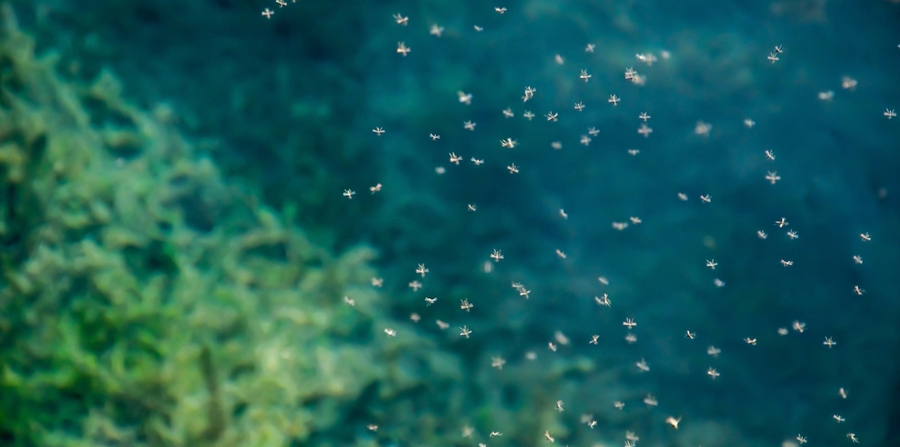By now, you don’t need us to tell you which pests are the most active this summer. In fact, you probably never want to think about these four pests ever again. For these four particularly prevalent pests, the heat and humidity of Michigan’s summer is paradise. They’ve been growing, breeding, spreading… and probably bothering you like there’s no tomorrow.
No matter how bad the bugs, however, you don’t have to suffer them without recourse. Even at their most populous, there’s always a reason why pests choose a particular place to infest. If you can make sure you don’t provide them with what they want, they’ll leave you alone. Here’s everything you need to know to keep your least favorite nuisances away from you this summer.
Mosquitoes
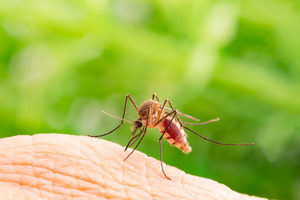 Mosquitoes are so prevalent in summer for a couple reasons. First, they either hatch in spring or start reproducing. Either way, it means a lot of mature mosquitoes come early summer. Hot weather also allows mosquitoes to grow through their life cycles faster. They hatch faster, grow faster, and reproduce faster. The hotter and more humid the environment, the more mosquitoes breed. The more mosquitoes breed, the more mosquitoes hunt for blood and bother you.
Mosquitoes are so prevalent in summer for a couple reasons. First, they either hatch in spring or start reproducing. Either way, it means a lot of mature mosquitoes come early summer. Hot weather also allows mosquitoes to grow through their life cycles faster. They hatch faster, grow faster, and reproduce faster. The hotter and more humid the environment, the more mosquitoes breed. The more mosquitoes breed, the more mosquitoes hunt for blood and bother you.
Mosquitoes need moisture to stay active, breed, and lay eggs. They prefer to live and hunt near sources of standing, stagnant water. You’d be surprised just how many sources of stagnant water mosquitoes can find and use. Any kind of ditch, basin, or bucket can collect water, and mosquitoes only need the tiniest amount. Look for and remove sources of water mosquitoes could use to reproduce or lay eggs, outside and inside. You’ll be surprised what a difference it makes!
Ticks
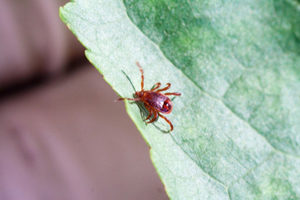 Several different factors conspired in 2018 to give us the worst tick season in years. Weather from La Niña produced a milder winter and an earlier spring. The mild weather allowed ticks to emerge and lay eggs much sooner than usual. In addition, the white-footed mouse population grew substantially last year. Small rodents like the white-footed mouse are a great food source for ticks. Between the weather and food availability, 2018 is a perfect storm for tick activity.
Several different factors conspired in 2018 to give us the worst tick season in years. Weather from La Niña produced a milder winter and an earlier spring. The mild weather allowed ticks to emerge and lay eggs much sooner than usual. In addition, the white-footed mouse population grew substantially last year. Small rodents like the white-footed mouse are a great food source for ticks. Between the weather and food availability, 2018 is a perfect storm for tick activity.
Ticks hunt by climbing shrubs and grasses. From their perches, the ticks simply wait for their prey to walk by and then grab onto it. The fewer places they have to hunt, the harder it will be for ticks to infest your property. Keep grass, shrubs, and bushes trimmed short during tick season. Take care to wear bug spray, long pants, and long sleeves when you’re in an area where ticks might live. Always check yourself for ticks after spending time outside. Tick-borne diseases are on the rise this year, so keeping yourself safe from ticks is more important than ever.
Silverfish
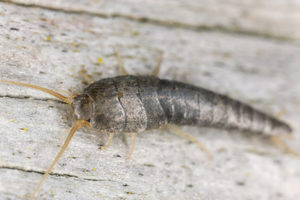 Unlike the other pests on this list, silverfish aren’t more prevalent during summer because of their natural lifecycle. Silverfish live for two to three years or more and produce more 50 offspring each. They can remain active and reproduce as long as they have access to warmth, darkness, and humidity. They seem more active in summer because heat and humidity let them move around more and stay out longer.
Unlike the other pests on this list, silverfish aren’t more prevalent during summer because of their natural lifecycle. Silverfish live for two to three years or more and produce more 50 offspring each. They can remain active and reproduce as long as they have access to warmth, darkness, and humidity. They seem more active in summer because heat and humidity let them move around more and stay out longer.
Silverfish are nocturnal and live in dark, humid, and secluded places. Indoors, you’re most likely to find them in places like your basement, attic, closets, or crawl spaces. Often, you’ll find them under furniture, boxes, bags, and other stored materials. They’ll generally stay close to food sources, such as flour, cereal, fabric, paper, clothing, paste, glue, or paper. Controlling your home’s humidity is the best way to keep silverfish out. Find and correct moisture problems like leaking pipes, especially in at-risk areas like your basement. Reducing the number of hiding places silverfish could access and depriving them of food will also help.
House flies
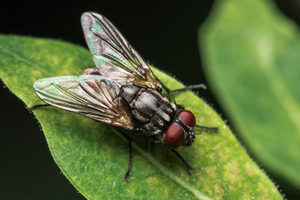 House flies become especially prevalent in summer because they begin reproducing in late spring. Mother house flies deposit up to 150 eggs on an appropriate food source, such as garbage. During the heat of summer, these eggs hatch very quickly–sometimes only hours after they’re laid! House flies grow faster in hot weather during every other stage of their development, as well. In summer, house flies can complete their entire four-stage life cycle in as few as 7 to 10 days.
House flies become especially prevalent in summer because they begin reproducing in late spring. Mother house flies deposit up to 150 eggs on an appropriate food source, such as garbage. During the heat of summer, these eggs hatch very quickly–sometimes only hours after they’re laid! House flies grow faster in hot weather during every other stage of their development, as well. In summer, house flies can complete their entire four-stage life cycle in as few as 7 to 10 days.
If you seem to have a house fly problem, it’s probably because they are laying eggs in your home. House flies lay eggs on food sources, which is usually garbage. House flies can only eat liquids, but they can liquefy various food items such as sugars and starches. Keep all your garbage in sealed plastic bags. Rinse out any liquid containers before you throw them out. Take garbage out to your outdoor dumpster frequently, and make sure it doesn’t spill.
Hopefully, these tips prove that no summer infestation is too intense to beat. Know your enemy and follow these strategies, and you can enjoy a pest-free* summer. That pest-free* summer can be this summer. Don’t give up!
If you need a little help driving out your pests once and for all, give Griffin a call any time. We’ve dealt with these all-too-common pests for plenty of summers before, and we’re happy to deal with them again.

